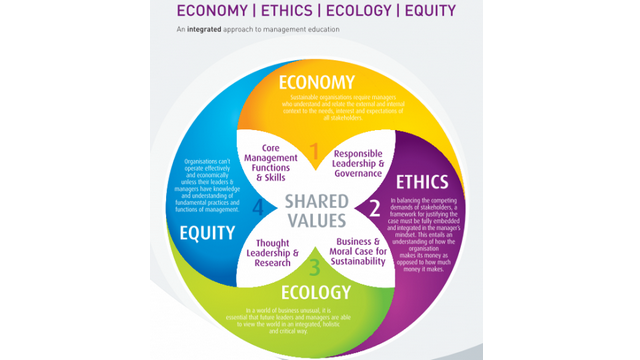
The future of management education: Integrated thinking, a ‘no- brainer’
Date Released: Mon, 19 May 2014 15:14 +0200By Heather Dugmore, Rhodes University Alumnus
The signing of a formalised, strategic collaboration to mainstream biodiversity into business signals the recognition by these two organisations of the synergies that exist in relation to their work in the private sector and they have joined forces to leverage off of each other’s existing networks, connections and best practice learning.
“The EWT approaches mainstreaming biodiversity into business through the National Biodiversity and Business Network (NBBN) and its strategic partnership with various businesses. The EWT supports companies in implementing solutions at several levels throughout the business’s operations and its supply chain. We aim to set best-practice standards in terms of making biodiversity a core business focus and concern within the private sector and profile businesses and partners who make efforts and achieve successes in this area,” said Dr Marie Parramon-Gurney, the EWT’s Head of Conservation Business and facilitator of the Network.
FFI protects threatened species and ecosystems worldwide, choosing solutions that are sustainable, based on sound science and take account of human needs.
Operating in more than 40 countries worldwide – mainly in the developing world – FFI saves species from extinction and habitats from destruction, while improving the livelihoods of local people. Founded in 1903, FFI is the world’s longest established international conservation body and a registered charity.
FFI also works with the private sector to build long-term strategies for environmental management.
“FFI believes that business value is gained through the knowledge that resources are not being depleted and impacts are within limits acceptable to local communities, customers and investors alike. We work with businesses and the influencers of business across a range of sectors to create an environment where the private sector has a long-term positive impact on biodiversity conservation,” commented Pippa Howard, Director of FFI’s Business & Biodiversity Programme.
The EWT and FFI have been collaborating on the business and biodiversity agenda over the last two years.
FFI became a supporting partner of the National Biodiversity and Business Network (NBBN) and the alignment of vision and work between the EWT and FFI was evident. The organisations will share and combine their respective expertise to ensure that companies in the region fully appraise and manage their direct and indirect business risks, opportunities and dependencies related to biodiversity.
“This collaboration will ensure that companies in the region are provided with comprehensive assistance, training, information, as well as direct strategic and operational support and tools based on international practices around mainstream biodiversity. This collaboration is one of the first in the region and it will enable the up scaling and consolidation of our efforts to ensure that biodiversity is regarded and managed as an essential asset for economic and social development by the private sector and government,” concluded Dr Parramon-Gurney.
For further information about the partnership please contact Dr Parramon-Gurney on mariep@ewt.org.za.
Source:.
